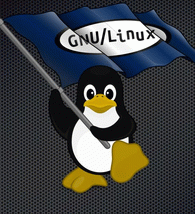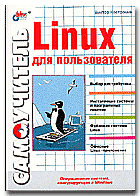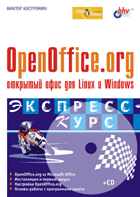Библиотека сайта rus-linux.net
| The Linux Kernel Module Programming Guide | ||
|---|---|---|
| Prev | ||
Index
Symbols
- /etc/conf.modules, How Do Modules Get Into The Kernel?
- /etc/modules.conf, How Do Modules Get Into The Kernel?
- /proc filesystem, The /proc File System
- /proc/interrupts, Interrupt Handlers
- /proc/kallsyms, Functions available to modules, Name Space, Common Pitfalls
- /proc/meminfo, The /proc File System
- /proc/modules, How Do Modules Get Into The Kernel?, The /proc File System
- 2.6 changes, Changes between 2.4 and 2.6
- _IO, Talking to Device Files (writes and IOCTLs)
- _IOR, Talking to Device Files (writes and IOCTLs)
- _IOW, Talking to Device Files (writes and IOCTLs)
- _IOWR, Talking to Device Files (writes and IOCTLs)
- __exit, Hello World (part 3): The __init and __exit Macros
- __init, Hello World (part 3): The __init and __exit Macros
- __initdata, Hello World (part 3): The __init and __exit Macros
- __initfunction(), Hello World (part 3): The __init and __exit Macros
B
- blocking processes, Blocking Processes
- blocking, how to avoid, Blocking Processes
- bottom half, Interrupt Handlers
- busy, Blocking Processes
C
- carnivore
- large, Common Pitfalls
- cleanup_module(), Hello, World (part 1): The Simplest Module
- code space, Code space
- coffee, Major and Minor Numbers
- copy_from_user, Read and Write a /proc File
- copy_to_user, Read and Write a /proc File
- CPU
- multiple, Symmetrical Multi-Processing
- crontab, Scheduling Tasks
- ctrl-c, Blocking Processes
- current task, Replacing printk
D
- DEFAULT_MESSAGE_LOGLEVEL, Introducing printk()
- defining ioctls, Talking to Device Files (writes and IOCTLs)
- device file
- character, Character Device Drivers
- device files
E
- EAGAIN, Blocking Processes
- EINTR, Blocking Processes
- ENTRY(system call), System Calls
- entry.S, System Calls
F
- file, The file structure
- filesystem
- /proc, The /proc File System
- registration, Manage /proc file with standard filesystem
- filesystem registration, Manage /proc file with standard filesystem
- file_operations, The file_operations Structure
- file_operations structure, Manage /proc file with standard filesystem
G
- get_user, Read and Write a /proc File
H
- handlers
- interrupt, Interrupt Handlers
- housekeeping, Scheduling Tasks
- Hurd, Code space
I
- inb, Keyboards on the Intel Architecture
- init_module(), Hello, World (part 1): The Simplest Module
- inode, The file structure, The /proc File System
- inode_operations structure, Manage /proc file with standard filesystem
- insmod, Compiling Kernel Modules, System Calls
- Intel architecture
- keyboard, Keyboards on the Intel Architecture
- interrupt 0x80, System Calls
- interrupt handlers, Interrupt Handlers
- interruptible_sleep_on, Blocking Processes
- interrupts
- disabling, Common Pitfalls
- ioctl, Talking to Device Files (writes and IOCTLs)
- defining, Talking to Device Files (writes and IOCTLs)
- official assignment, Talking to Device Files (writes and IOCTLs)
K
- kernel
- versions, Changes between 2.4 and 2.6
- kernel versions, Writing Modules for Multiple Kernel Versions
- kerneld, How Do Modules Get Into The Kernel?
- KERNEL_VERSION, Writing Modules for Multiple Kernel Versions
- keyboard, Keyboards on the Intel Architecture
- keyboard LEDs
- flashing, Flashing keyboard LEDs
- kmod, How Do Modules Get Into The Kernel?
L
- libraries
- standard, Common Pitfalls
- library function, Functions available to modules
- LINUX_VERSION_CODE, Writing Modules for Multiple Kernel Versions
M
- major number, Major and Minor Numbers
- dynamic allocation, Registering A Device
- memory segments, Read and Write a /proc File
- microkernel, Code space
- minor number, Major and Minor Numbers
- mknod, Major and Minor Numbers
- modem, Talking to Device Files (writes and IOCTLs)
- MODULE_AUTHOR(), Hello World (part 4): Licensing and Module Documentation
- module_cleanup, Scheduling Tasks
- MODULE_DESCRIPTION(), Hello World (part 4): Licensing and Module Documentation
- module_exit, Hello World (part 2)
- module_init, Hello World (part 2)
- module_interruptible_sleep_on, Blocking Processes
- MODULE_LICENSE(), Hello World (part 4): Licensing and Module Documentation
- module_permissions, Manage /proc file with standard filesystem
- module_sleep_on, Blocking Processes
- MODULE_SUPPORTED_DEVICE(), Hello World (part 4): Licensing and Module Documentation
- module_wake_up, Blocking Processes
- MOD_DEC_USE_COUNT, Unregistering A Device
- MOD_INC_USE_COUNT, Unregistering A Device
- MOD_IN_USE, Unregistering A Device
- monolithic kernel, Code space
- multi-processing, Symmetrical Multi-Processing
- multi-tasking, Blocking Processes
- multitasking, Blocking Processes
N
- namespace pollution, Name Space
- Neutrino, Code space
- non-blocking, Blocking Processes
O
- official ioctl assignment, Talking to Device Files (writes and IOCTLs)
- O_NONBLOCK, Blocking Processes
P
- permission, Manage /proc file with standard filesystem
- pointer
- printk
- replacing, Replacing printk
- printk(), Introducing printk()
- proc file
- kallsyms, Common Pitfalls
- processes
- blocking, Blocking Processes
- killing, Blocking Processes
- waking up, Blocking Processes
- processing
- multi, Symmetrical Multi-Processing
- proc_register, The /proc File System
- proc_register_dynamic, The /proc File System
- putting processes to sleep, Blocking Processes
- put_user, Read and Write a /proc File
Q
- queue_delayed_work, Scheduling Tasks
- queue_work, Interrupt Handlers
R
- read
- in the kernel, Read and Write a /proc File
- reference count, Scheduling Tasks
- refund policy, Common Pitfalls
- register_chrdev, Registering A Device
- request_irq(), Interrupt Handlers
- rmmod, System Calls, Scheduling Tasks
- preventing, Unregistering A Device
S
- SA_INTERRUPT, Interrupt Handlers
- SA_SHIRQ, Interrupt Handlers
- scheduler, Blocking Processes
- scheduling tasks, Scheduling Tasks
- segment
- memory, Read and Write a /proc File
- seq_file, Manage /proc file with seq_file
- serial port, Talking to Device Files (writes and IOCTLs)
- shutdown, System Calls
- SIGINT, Blocking Processes
- signal, Blocking Processes
- sleep
- putting processes to, Blocking Processes
- sleep_on, Blocking Processes
- SMP, Symmetrical Multi-Processing
- source file
- chardev.c, Talking to Device Files (writes and IOCTLs)
- chardev.h, Talking to Device Files (writes and IOCTLs)
- hello-1.c, Hello, World (part 1): The Simplest Module
- hello-2.c, Hello World (part 2)
- hello-3.c, Hello World (part 3): The __init and __exit Macros
- hello-4.c, Hello World (part 4): Licensing and Module Documentation
- hello-5.c, Passing Command Line Arguments to a Module
- intrpt.c, Keyboards on the Intel Architecture
- ioctl.c, Talking to Device Files (writes and IOCTLs)
- print_string.c, Replacing printk
- sched.c, Scheduling Tasks
- sleep.c, Blocking Processes
- start.c, Modules Spanning Multiple Files
- stop.c, Modules Spanning Multiple Files
- syscall.c, System Calls
- source files
- standard libraries, Common Pitfalls
- strace, Functions available to modules, System Calls
- struct
- tty, Replacing printk
- struct file_operations, Manage /proc file with standard filesystem
- struct inode_operations, Manage /proc file with standard filesystem
- symbol table, Name Space
- symmetrical multi-processing, Symmetrical Multi-Processing
- sync, System Calls
- system call, Functions available to modules, System Calls
- open, System Calls
- system calls, System Calls
- sys_call_table, System Calls
- sys_open, System Calls
T
- task, Scheduling Tasks
- current, Replacing printk
- tasks
- scheduling, Scheduling Tasks
- TASK_INTERRUPTIBLE, Blocking Processes
- try_module_get, System Calls
- tty_structure, Replacing printk
W
- waking up processes, Blocking Processes
- workqueue_struct, Scheduling Tasks
- write
- in the kernel, Read and Write a /proc File






